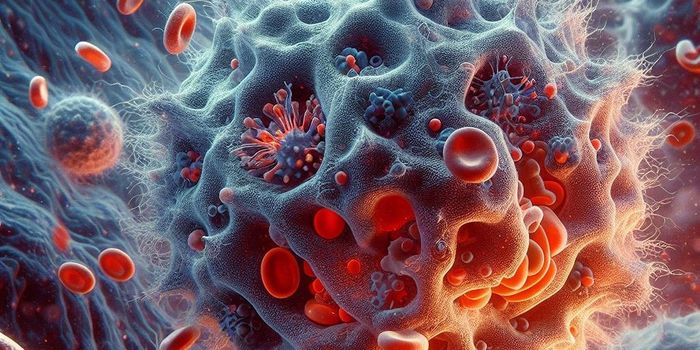Developing Drugs to Combat Antibiotic Resistance
In accordance with the World Health Organization (WHO), antibiotic-resistant pathogens may soon become a public health crisis. The effectiveness of current antibacterial drugs are dramatically decreasing and the development of new drugs are going on a slow pace. Additionally, the evolution of antibiotic resistance will most likely make new drugs ineffective. With all these issues at hand, researchers hope to improve the effectiveness of existing antibiotics by targeting a combination of certain active agent properties.

Investigators at the Evolutionary Ecology and Genetics research group at Kiel University developed a systematic experimental analysis of the efficacy of a diverse set of antibiotic combinations against the pathogenic bacterium Pseudomonas aeruginosa. Research associate, Dr. Camilo Barbosa in the Evolutionary Ecology and Genetics research group at Kiel University, performed the evolution experiments with 39 combinations of twelve various active compounds. Barbosa revealed the bacterium to diverse drug pairs for up to 10 days, observing the growth of bacteria in culture and the resulting resistance over time.

Through roughly 1,600 evolution experiments, Barbosa was thus able to systemically document the efficacy of drug combinations on bacterial adaptation. Two main factors crucial for combination efficacy were identified. The first was ‘synergistic effects’ between the active ingredients which were found to be important in enhancing the activity leading to an increase in pathogen eradication. The second key factor was collateral sensitivity where an evolved resistance against one antibiotic drug allows the bacterium to have an increased sensitivity or susceptibly to a second drug.
"With the ACE model we describe, for the first time, the specific properties of drug combinations that enhance treatment efficacy. In this way, we want to help make the fight against bacterial infections more targeted and sustainable in future," explains Professor Hinrich Schulenburg, the head of the research group and spokesperson of the Kiel Evolution Center (KEC), “The present study also emphasizes once again that a successful fight against antibiotic resistance can only succeed if the underlying evolutionary principles are considered for treatment design.”
Sources: MedicalXpress, American Society for Microbiology (ASM)
-
APR 30, 2024Immuno-Oncology Virtual Event Series 2024
-
MAY 07, 20243rd International Biosecurity Virtual Symposium
-
SEP 03, 2024Microbiology Week Virtual Event Series 2024
- See More

















































